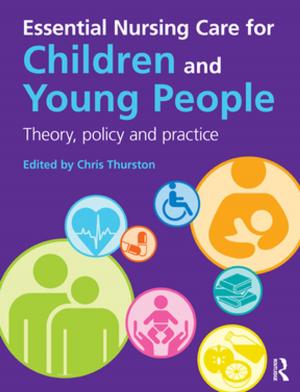Pathways to Excessive Gambling
A Societal Perspective on Youth and Adult Gambling Pursuits
Nonfiction, Social & Cultural Studies, Social Science, Anthropology| Author: | Charlotte Fabiansson | ISBN: | 9781317083283 |
| Publisher: | Taylor and Francis | Publication: | May 13, 2016 |
| Imprint: | Routledge | Language: | English |
| Author: | Charlotte Fabiansson |
| ISBN: | 9781317083283 |
| Publisher: | Taylor and Francis |
| Publication: | May 13, 2016 |
| Imprint: | Routledge |
| Language: | English |
Pathways to Excessive Gambling draws upon extensive empirical research amongst young people and problem gamblers in Australia, comparing it with situations in other territories, to shed light on social, recreational gambling and the ways in which this can lead to excessive gambling. It highlights the relationship between the local community, sports clubs, governments, social recreation, economy and regulation of gambling venues, identifying the social indicators that typify situations which commonly lead to excessive gambling. By developing a 'society-based' perspective, this volume recognizes problem gambling as an issue for the whole society rather than just the individual, focusing on the availability of gambling and identifying its capacity, as a construct, to encourage or restrict the behaviour of the individual. As such, this book will be of significance to social scientists with interests in gambling, young people, social problems, and the sociology of leisure and culture.
Pathways to Excessive Gambling draws upon extensive empirical research amongst young people and problem gamblers in Australia, comparing it with situations in other territories, to shed light on social, recreational gambling and the ways in which this can lead to excessive gambling. It highlights the relationship between the local community, sports clubs, governments, social recreation, economy and regulation of gambling venues, identifying the social indicators that typify situations which commonly lead to excessive gambling. By developing a 'society-based' perspective, this volume recognizes problem gambling as an issue for the whole society rather than just the individual, focusing on the availability of gambling and identifying its capacity, as a construct, to encourage or restrict the behaviour of the individual. As such, this book will be of significance to social scientists with interests in gambling, young people, social problems, and the sociology of leisure and culture.















